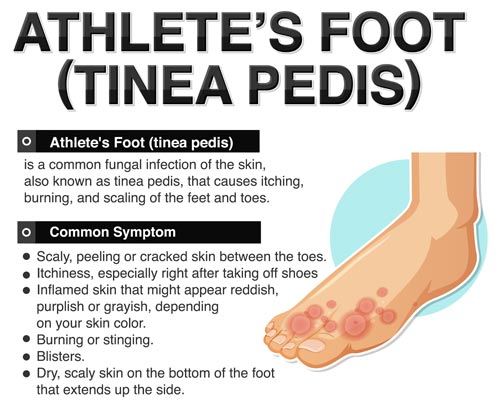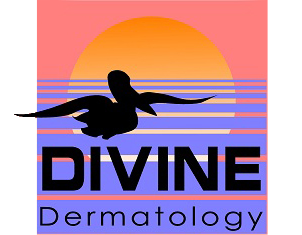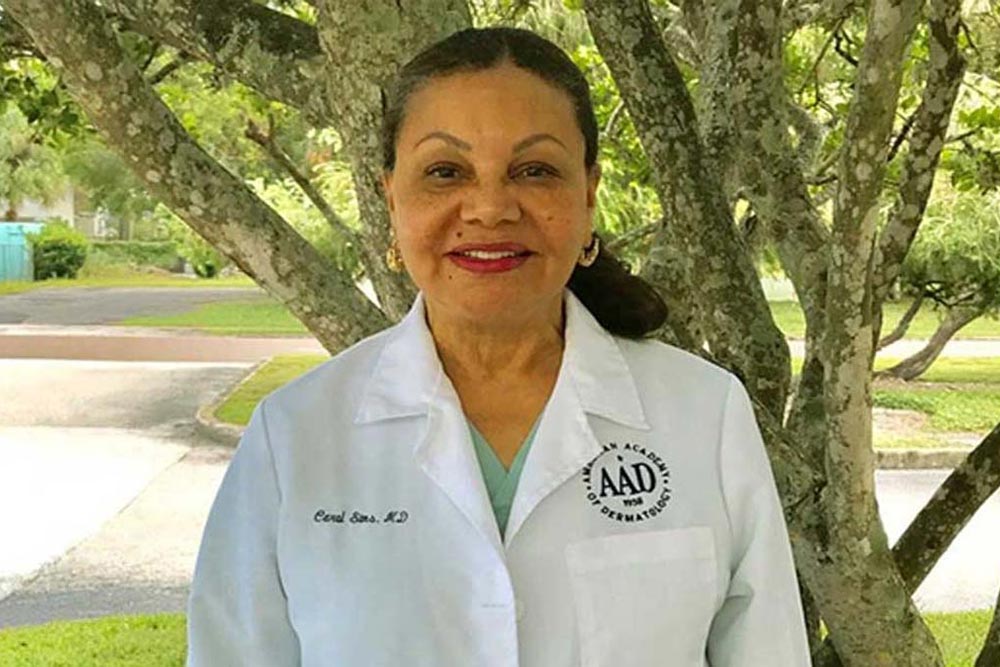Clinical Specialization | Athlete’s Foot
Introduction
Athlete’s foot is caused by a fungal infection, typically from dermatophytes, that thrives in warm, damp environments. It can be triggered by moisture from sweaty socks or shoes, walking barefoot in public places like pools or gyms, poor foot hygiene, and wearing tight, non-breathable footwear.
Symptoms
Athlete’s foot symptoms include itching, burning, redness, and inflammation, typically between the toes or on the soles. The skin may peel, crack, or blister, and it can become dry and scaly. In some cases, there may be a foul odor, especially if the feet are sweaty or not properly dried.
Why You Should Get It Treated
Prevents Spread: It can spread to other parts of your body, such as your hands or nails, or to other people.
Reduces Discomfort: It alleviates the itching, burning, and pain.
Prevents Complications: It can lead to more severe issues, like bacterial infections or fungal nail infections, especially if the skin cracks and becomes open to bacteria.
Stops Recurrence: To prevent it from coming back or spreading in the future.
Improves Skin Health: It can damage your skin, causing peeling, cracking, or scarring.
Protects Others: By treating it, you help protect family, friends, or coworkers from getting infected.

How We Treat Athlete’s Foot
Topical Antifungal Medications: The most common treatment is the use of antifungal creams, sprays, or powders.
Oral Antifungal Medications: In more severe or widespread cases, we may prescribe oral antifungal medications such as fluconazole or itraconazole.
Antifungal Soaks: To help treat the infection and relieve itching or burning.
Proper Foot Care Advice: Provide guidance on maintaining good foot hygiene, such as keeping feet dry, changing socks regularly, and avoiding tight, non-breathable footwear.
Treating Secondary Infections: If a bacterial infection develops due to the athlete’s foot, antibiotics may be prescribed in addition to antifungal treatments.
Prevention Tips: Offer advice on preventing future flare-ups, such as avoiding walking barefoot in public places, using antifungal powders regularly, and ensuring feet are kept dry.
For Consultations Call us at (727) 528-0321
What else would you like to do?
Get to know Dr. Carol Sims-Robertson, including her history, her education and her specializations.
See our office’s location, learn about its features and view the image gallery.
See which insurance plans we accept and other important information about how we handle insurance.






